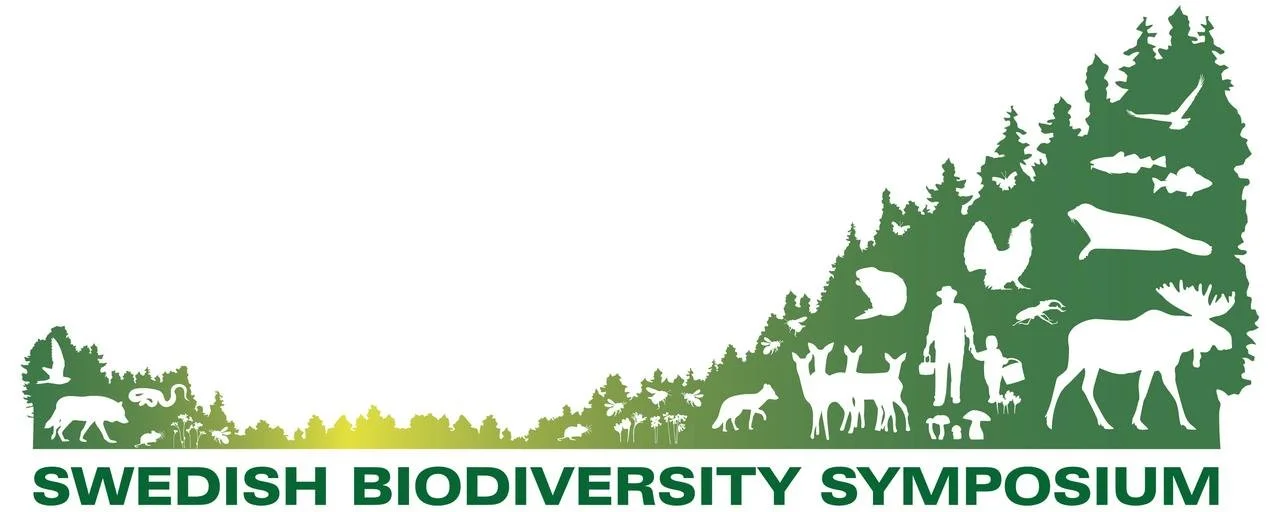The Swedish Biodiversity Symposium is a science-policy interface-orientated forum for communication, dissemination, and discussion of science-based knowledge on biodiversity. It provides an opportunity to gain new perspectives, learn from each other, and engage in networking and collaboration. The symposium's main theme is Transformative change – from knowledge to action. This broad theme allows for deeper discussion from many perspectives: conservation, evolution, policy-making, species loss, ecosystem services/nature’s contribution to people, nature-based solutions, restoration measures, psychology, climate, land use, health, economic incentives, food security, pollution and more.
The Swedish Biodiversity Symposium welcomes national and international participants who work with biodiversity in any professional capacity (e.g. research, policymaking, nature management, education, outreach), including those active in academia, research institutions, government agencies, businesses and NGOs.
Read more about the symposium here: Swedish Biodiversity Symposium
Important dates for registration
18 August 2025: deadline for early registration
15 September 2025: deadline for late registration
Sessions co-arranged by Focali
Session 15: Advancing social science dimensions on biodiversity to spur transformative policy and action
Time and venue: October 22, 13:30-15:00, Natrium.
About the session:
The Intergovernmental Science-Policy Platform on Biodiversity and Ecosystem Services states that transformative change is urgent. It's necessary to address the global interconnected crises related to biodiversity loss and the underlying causes of nature’s decline and bring about a just and sustainable world in harmony with nature. However, spurring transformative policy and action is no straightforward task, and requires new types of approaches and knowledge. Social sciences can help in this task, by reframing the issue of biodiversity and asking powerful questions from a wide range of starting points.
In this session we will discuss what applying lenses from social sciences perspectives can reveal about biodiversity related problems and what societal conditions ultimately drive loss of biodiversity and impede action. Through contributions from social scientists and from practitioners this session aims to demonstrate how social science dimensions on biodiversity can help to lay the ground for transformative change in ways that are useful for policy and action. Since the input of social sciences has repeatedly been pronounced as important for biodiversity policy and practice, here we present an opportunity to delve deeper into these opportunities via talks, joint discussions and a concluding research – policy – practice panel.
See agenda with speakers here
Organizers :
Stephen Woroniecki (WWT) and Maria Ölund (Wexsus, GU), The Focali research network and SIANI network
Tuija Hilding-Rydevik and Johanna Tangnäs, SLU Swedish Biodiversity Centre
Time and venue: October 22, 11:00-12:30, Wallenbergsalen
About the session:
This session explores the role of supply-chain transparency in curbing biodiversity loss and promoting sustainable production practices. Advances in technology and data analytics are improving the ability to trace commodities like timber and food, while regulations such as the EU Deforestation Regulation mandate greater supply-chain traceability and transparency. However, the effectiveness of transparency in driving change at scale remains uncertain.
The session will feature presentations of recent work of researchers and initiatives including Trase, World Forest ID, and the Swedish Life Cycle Center on methods and data for improving transparency and measuring biodiversity impacts in timber and agri-food supply chains. Experts will discuss challenges in translating transparency into actionable strategies that incentivise biodiversity-friendly practices. By fostering interdisciplinary collaboration, the session aims to bridge the gap between knowledge and action, ensuring that global supply chains actively support biodiversity conservation.
See agenda and speakers here
Organizers:
Alexandre Antonelli, Royal Botanic Gardens, Kew and University of Gothenburg
Caroline Franca, Chalmers University of Technology
Toby Gardner, Stockholm environment Institute and Trase
Florian Gollnow, Stockholm environment Institute and Trase
Sara Hornborg, RISE
Torsten Krause, Lund University
Martin Persson, Chalmers University of Technology
Jakub Truszkowski, Chalmers University of Technology & World Forest ID
Maria Ölund; Forest, Climate & Livelihoods Research Network - Focali

